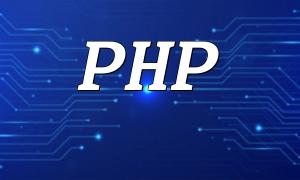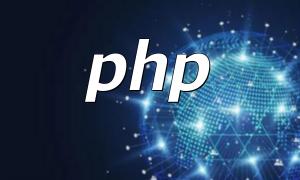PHP is a widely used web development language, popular for creating various websites and applications. However, during actual development, PHP developers frequently encounter many challenges and problems. In this article, we will explore some of the most common PHP issues and provide effective solutions to help developers improve development efficiency and application performance.
Performance issues are one of the most common challenges in PHP development. As user numbers and data volumes grow, PHP applications may encounter performance bottlenecks, causing slow responses or an inability to handle high-concurrency access.
Solution: Key methods to improve PHP application performance include using caching technologies (such as Redis or Memcached), optimizing database queries, selecting more efficient algorithms and data structures, and applying appropriate caching strategies. Additionally, using performance profiling tools such as Xdebug or XHProf can help developers locate and resolve performance bottlenecks.
Due to the flexibility and ease of use of PHP, many developers may overlook security while writing code, leading to various security vulnerabilities. These vulnerabilities can result in application attacks, potentially causing data leakage or loss.
Solution: Follow PHP security best practices, such as filtering user input, using parameterized queries to prevent SQL injection, preventing cross-site scripting (XSS), and implementing secure session management strategies. Developers can also make use of security frameworks and tools like OWASP PHP Security Project and PHPIDS (PHP Intrusion Detection System) to enhance application security.
Maintaining code quality is crucial in PHP application development. Poor-quality code is not only difficult to understand and debug but also makes it harder to maintain the project in the long term.
Solution: Follow coding standards and best practices, choose meaningful variable and function names, avoid global variables, and add comments to improve code readability. Additionally, static analysis tools (such as PHPStan or PHP_CodeSniffer) and automated testing tools (such as PHPUnit) can be used to ensure code quality.
PHP applications may sometimes face compatibility issues across different operating systems or environments, causing certain functionalities to fail.
Solution: To avoid cross-platform compatibility issues, developers should avoid using platform-specific features and instead choose cross-platform development frameworks and libraries (such as Laravel, Symfony, etc.). These tools can help ensure that PHP applications run smoothly across multiple platforms.
As project requirements evolve and grow, PHP applications need continuous maintenance and scalability. However, without a good architectural design and coding practices, the project may become difficult to maintain and fail to meet new requirements.
Solution: Using appropriate design patterns and object-oriented programming (OOP) principles can significantly improve the maintainability and scalability of the code. Moreover, by adopting modular and component-based development methods, developers can break the application into independent modules, making it easier to maintain and extend.
By delving into the common PHP issues discussed in this article, we can better understand the various challenges encountered during PHP development and implement effective solutions to improve development efficiency, ensure code quality, and enhance application security and maintainability. We hope the insights and methods provided in this article will help developers address PHP development issues and enhance the quality and performance of their projects.
Related Tags:
API








